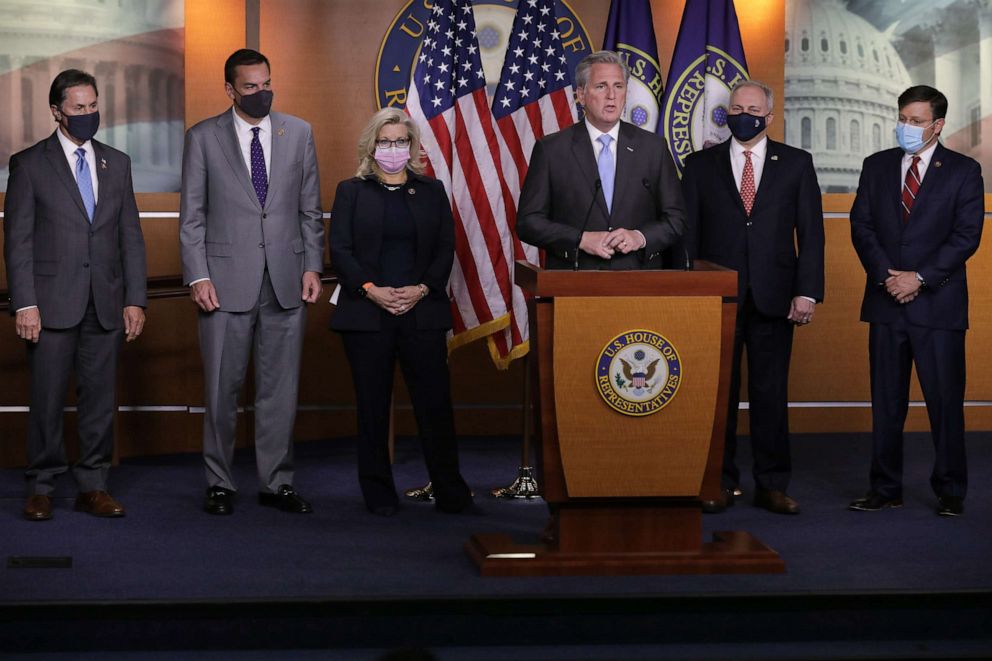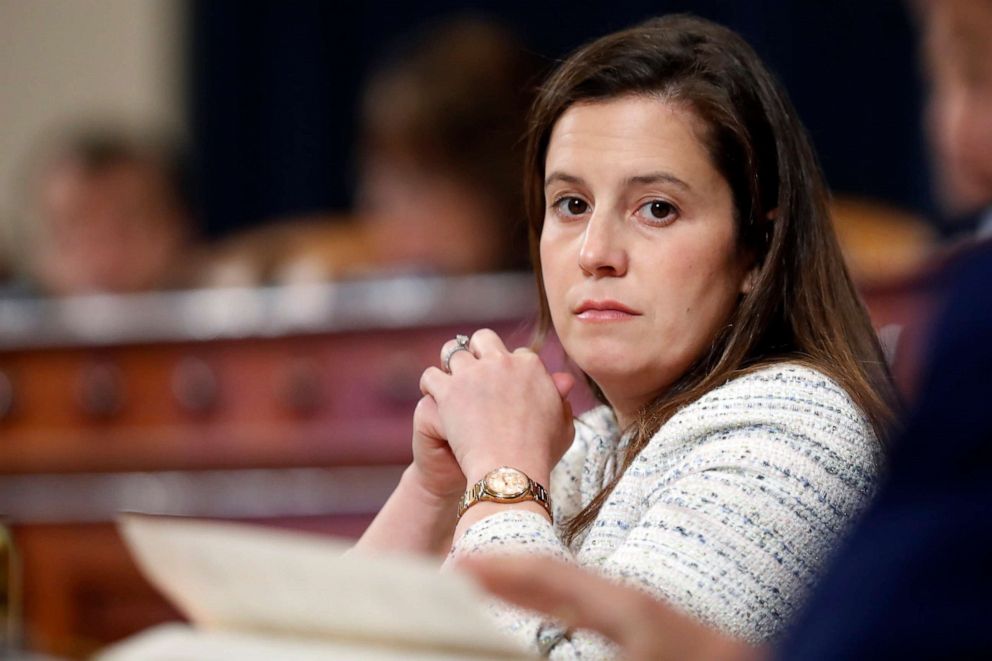House Republicans poised to remove Rep. Liz Cheney from leadership for Trump criticism
Cheney warned that Trump could incite more violence over the election results.
Rep. Liz Cheney, R-Wyo., remained defiant Tuesday just hours before Republicans are expected to remove her from House GOP leadership, warning that former President Donald Trump's continued attacks against the 2020 election threaten American democracy and risk inciting more violence.
Taking to the House floor in a near-empty chamber after several conservative colleagues railed against "cancel culture," Cheney delivered a searing indictment of House GOP leaders seeking to expel her from their ranks after she voted to impeach Trump for inciting the Jan. 6 Capitol riot, and her continued denunciations of the former president.
"Remaining silent and ignoring the lie emboldens the liar," Cheney said. "I will not participate in that. I will not sit back and watch in silence while others lead our party down a path that abandons the rule of law and joins the former president's crusade to undermine our democracy."
Despite her fiery speech, Cheney all but acknowledged that she is likely to lose her post in the closed-door party vote Wednesday morning. House Republicans can unseat her with a simple majority of their members, and are easily expected to clear that threshold in a secret ballot vote.

Cheney, with the support of House Minority Leader Kevin McCarthy, R-Calif., beat back a February attempt to oust her from leadership in a 145-61 vote. But McCarthy, who aims to retake the House next year and become speaker, has openly endorsed Rep. Elise Stefanik, R-N.Y., to succeed Cheney amid her criticism of Trump.
"If we are to succeed in stopping the radical Democrat agenda from destroying our country, these internal conflicts need to be resolved so as to not detract from the efforts of our collective team," McCarthy wrote in a letter to Republicans Monday.
Stefanik, once an aide to former Speaker of the House Paul Ryan, aggressively defended Trump during his first impeachment trial, and has the support of the 45th president to supplant Cheney as the lone woman in House GOP leadership.
But some conservative critics of Cheney's have voiced frustration with the push to embrace Stefanik, who was elected to Congress as a moderate and has a far less conservative voting record than Cheney or other GOP leaders -- including a vote against the 2017 GOP rewrite of the tax code.

"I think a deliberative effort would serve the conference well and all involved," Rep. Mike Johnson, R-La., the vice-chair of the House GOP conference, told reporters. "I don't think we should rush such an important decision."
Rep. Chip Roy, R-Texas, a member of the House Freedom Caucus, distributed a memo to GOP colleagues making the case against Stefanik -- citing her voting record -- and even suggested keeping the role vacant.
"We have a great deal of support from the Freedom Caucus and others," Stefanik told reporters in response to Roy's letter.

Republicans are not expected to vote on Cheney's replacement Wednesday morning, but could hold a second vote on her successor after a forum for Stefanik and any other candidates in the coming days.
The Wyoming Republican said she will continue to speak out against Trump after the vote as she and some of the other House Republicans who voted to impeach the former president gear up for what could be a series of bruising primaries against Trump-backed opponents.
ABC News' Allison Pecorin and Rachel Scott contributed to this report.




